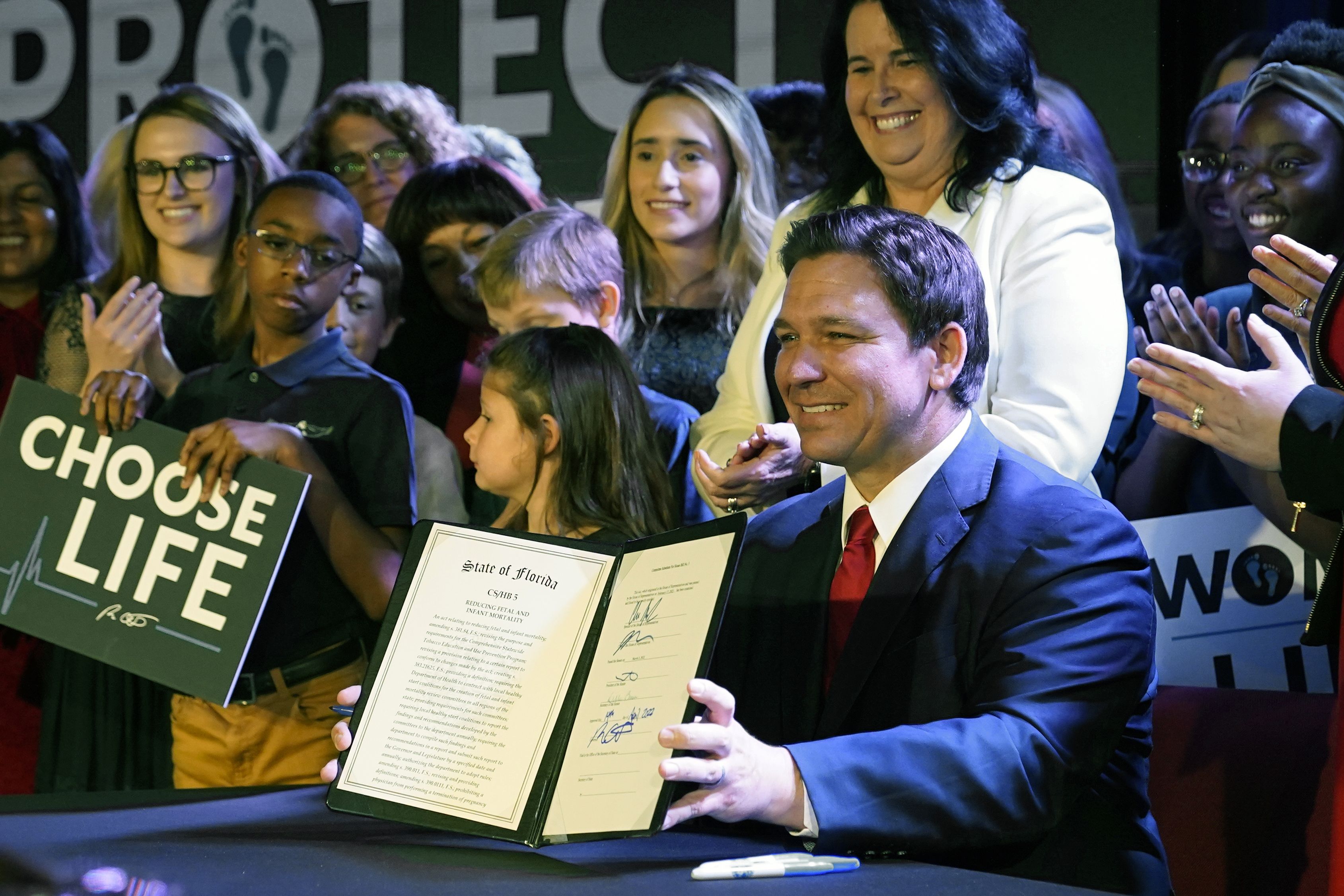In the case of Tatel v. Mt. Lebanon School District, a set of parents are plaintiffs against the education they are receiving from a first-grade teacher, Megan Williams. The parents claim that Williams, with permission of the public school district, pursued an agenda outside of the curriculum showing the first-grade students videos, books, and transgender topics, without parental permission. As the parents were aware of the situation, they filed complaints against the school district where the school district backed Williams by the "de facto" policy where Williams did not need parental permission, and the parents were not able to opt their children out of transgender discussions. Williams has a transgender child who during the 2021-2022 school district, was in the first grade. Williams has strong views as a teacher as she claims she will teach the children what they need to learn, did not let her class recite the Pledge of Allegiance for 52 days, and denied a parent's request from exempting her child from watching a certain cartoon. The parents were not pleased with Williams' teaching methods, so they seek justice on five counts of constitutional justice on the First and Fourteenth Amendment against Williams and the School Board, as well as one count from Pennsylvania Code against the District. The questions of law that I will be focusing on this blog post is: is Williams violating Fourteenth Amendment rights of the parents by infringing on the right to familial privacy? Is Williams violating the free exercise of religion rights of the parents by not following school curriculum and teaching first-graders about transgender topics as well as denying exemption from these topics?
The first factor in the case that needs to be considered is if Williams is violating the right to familial privacy with her teaching methods. In one instance, a set of parents were displeased with Williams as she told a boy that she had private discussions with a boy about the similarities between he and her transgender child, and that the boy could dress with a dress and hair like his mother. The defiance of parents was also seen as Williams denied a mother's ask to exempt her child from a cartoon due to it not being age appropriate. Williams teaches at a public school, where the parents' tax dollars are paying her salary, so it seems very unreasonable that she has the right to deny these wishes. Since Williams has broken school curriculum and is having private conversations with first-grade students about their sexual-orientation, it is natural to ask when can parents step in for the sake of their child?
The next aspect that I will consider is whether or not Williams actions as a teacher violate the parents rights of free exercise of religion. In order to adequately answer this question, one must observe the case of Lasche v. New Jersey. In this case, the Lasche's are foster parents. The Lasche's oppose same-sex marriage, and had their foster child removed and suspended their foster license removed due to their Christian views against same-sex marriage. The court eventually allowed to Lasche's to continue their case to the lower court. The opinion provided included the quotes, "...the Lasche's allege two forms of of constitutionally protected activity - one involving religious belief, and the other, action inspired by religious belief." The opinion given in this case shows similarities to the Tatel v. Mt. Lebanon School District case. The phrase of the ruling "action inspired by religious belief" shows how the parents should have the right to protect their children from learning about transgender topics at six years old by being allowed to opt out of this part of the instruction that Williams provides. This case, along with Wisconsin v. Yoder, show the parental right to instill the religious views into their own children and not from a public school district.
I understand that Williams is allowed to have her own views on transgender topics, and that she also is protected under the free exercise clause to practice these as she pleases. However, she has assumed the right of a government worker through tax-payer dollars by having the profession of an educator. The court ruled against her and the School Board for denying the free exercise right of the parents to opt their first grade children form transgender topics in a public classroom, and I could not agree with the decision more. I see similarities to Stone v. Graham, where the Ten Commandments had to be removed from classrooms in Kentucky. Although this case was an establishment issue, the precedent that children have impressionable minds remains the same. Williams is entitled to have the views she wants about transgender issues, but she can not teach first grade kids these views in public school hours. without giving way for allowing parents to opt out of these lessons.
Bibliography
CARMILLA TATEL, STACY DUNN and GRETCHEN MELTON, individually and as parents and natural guardians of their children, Plaintiffs, v. MT. LEBANON SCHOOL DISTRICT, THE MT. LEBANON SCHOOL BOARD, MEGAN WILLIAMS, DR. TIMOTHY STEINHAUER, DR. MARYBETH D. IRVIN, BRETT BIELEWICZ, JACOB W. WYLAND, VALERIE M. FLEISHER, TODD W. ELLWEIN, ANDREW D. FREEMAN, ERIN C. GENTZEL, CLAIRE B. GUTH, DR. JUSTIN D. HACKETT, ANAMARIA A. JOHNSON, and SARAH L. OLBRICH, (IN THE UNITED STATES DISTRICT COURT FOR THE WESTERN DISTRICT OF PENNSYLVANIA October 27, 2022).
Stone v. Graham, 449 U.S. 39 (1980). Justia Law. (n.d.). Retrieved October 31, 2022, from https://supreme.justia.com/cases/federal/us/449/39/
Yoder, K. (2022, October 27). Foster parents can share religious views with children, Appeals Court rules. Catholic News Agency. Retrieved October 31, 2022, from https://www.catholicnewsagency.com/news/250597/appeals-court-foster-parents-can-share-religious-views-with-children









